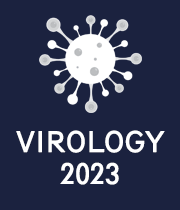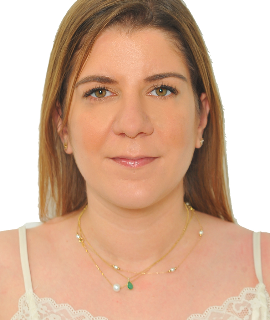Title : Post- vaccination humoral immune responses against SARS-CoV-2 in patients with haematologic malignancies
Abstract:
Abstract:
Patients with haematologic malignancies are at high risk for coronavirus disease 2019 (COVID-19) related complications, with reported high mortality rates compared to the general population. While vaccination constitutes the cornerstone of protection against COVID-19 for healthy individuals, patients with haematologic malignancies display disease related immune dysregulation and/or therapy related immunosuppression, with both factors being implicated in low humoral responses after SARS-CoV-2 vaccination. Decreased antibody responses have been reported both in patients with lymphoid and myeloid malignancies, though research mainly focuses on patients with malignancies of lymphoid origin. The striking variability in antibody responses amongst these patients is attributed to different disease biology and treatment modalities. This presentation aims to review data from the published literature regarding humoral immune responses in patients with hematologic malignancies after SARS-CoV-2 vaccination.
Amongst patients with haematologic malignancies, those receiving anti-CD19 targeted CAR-T cell therapy or hematopoietic stem cell transplantation are reported to have to the lowest seroconversion rates.
Chronic lymphocytic leukemia patients demonstrate low seroconversion rates after SARS-CoV-2 vaccination, ranging though from 39% to 71% in different published cohorts. These discrepancies may be attributed to different approaches, from active therapy to monitoring. Immunoparesis and treatment with Bruton’s tyrosine kinase (BTK) inhibitors have been correlated with lower antibody responses, while correlations regarding B-cell lymphoma 2 (BCL-2) inhibitors or anti-CD20 therapy are not consistent between different studies.
The seroconversion rates in patients with non-Hodgkin lymphoma (NHL) are reported to range from 42% to 75%. It seems that the timing between therapy and vaccination is the main factor attributing to this wide range. It is striking that serologic responses could be as low as 3% for patients are vaccinated within the first 2 months from anti-CD20 therapy and reach levels as high as 80% if therapy preceded at least 12 months.
For multiple myeloma patients the seroconversion rate ranges between 65% and 95%. Factors attributing to the reported variability include age, hypogammaglobulinemia level, number of lines of therapies and active treatment with an anti-CD38 antibody, anti-BCMA therapy, or corticosteroids, all of which are significant factors resulting in lower antibody response rates.
It has been demonstrated that patients with acute myeloid leukemia, chronic myeloid leukemia and myelodysplastic syndromes show antibody responses that are close to those of healthy individuals, while other published data indicate that among myeloid malignancies patients with myeloproliferative neoplasms and myelodysplastic syndromes demonstrate the lowest antibody response rates.
Overall, for patients with haematologic malignancies, the lower antibody response rates after SARS-CoV-2 vaccination are predominantly reported for those under active therapy, with anti-CD20 therapy, BTK inhibitors, Janus kinase inhibitors and BCL-2 inhibitors having a negative impact on seroconversion, especially if the vaccination takes place in less than 12 months after the last treatment. Although, solely estimating the rates of seroconversion may underscore the level of protection against COVID-19, since the immunological responses are far more complex and implicate mechanisms other than antibody production, we should tailor the sequence and timing of vaccination and vaccine boosters to achieve the best possible antibody responses in patients with haematologic malignancies.
What will audience learn from your presentation?
(Try to list 3-5 specific items)
- Identify patients with haematologic malignancies who are more likely to develop insufficient humoral immune responses after SARS-CoV-2 vaccination
- Adopt specific vaccination strategies for patients with haematologic malignancies to achieve the best possible antibody response after SARS-CoV-2 vaccination
- Consider treatment modifications, when possible, to dampen the effect of immunosuppressive therapy on SARS-CoV-2 vaccination efficacy


